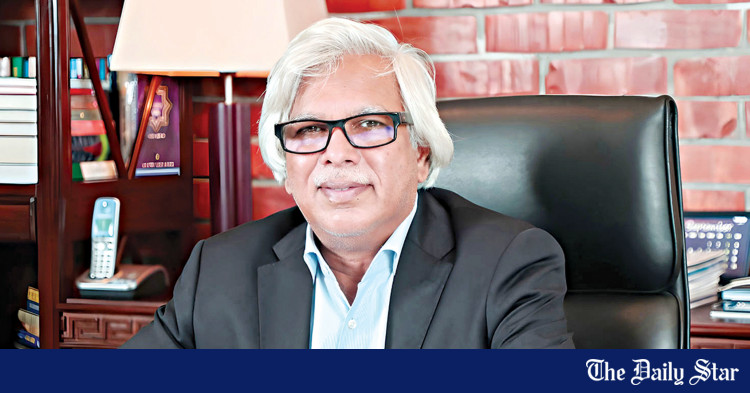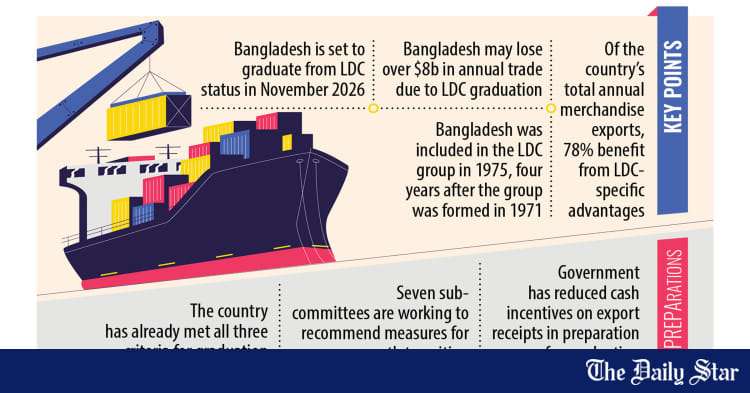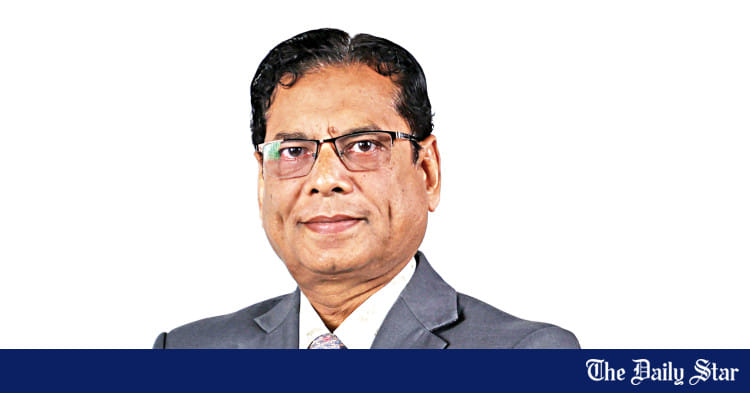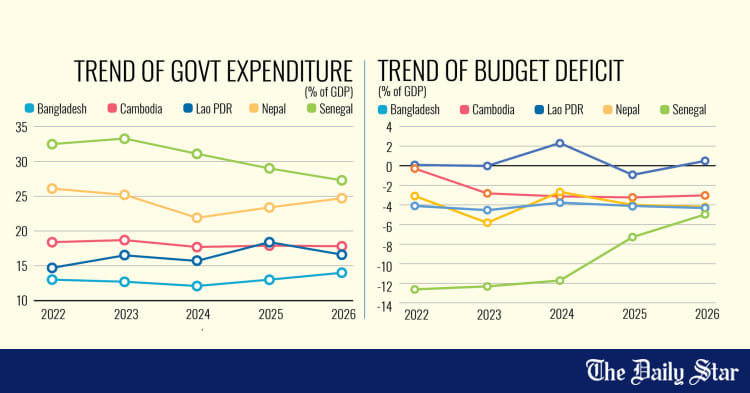Saif
Senior Member
- 13,746
- 7,411
- Origin

- Axis Group

Date of Event:
Nov 11, 2024
Bangladesh prioritises smooth LDC graduation, says Salehuddin
FE ONLINE DESK
Published :
Nov 10, 2024 22:28
Updated :
Nov 10, 2024 22:28

Adviser to the interim government on the Ministries of Finance and Commerce Dr Salehuddin Ahmed has said Bangladesh is prioritising to ensure smooth and sustainable graduation from the Least Developed Country (LDC) category.
“Bangladesh will prioritise smooth graduation from LDC. It will not happen suddenly.
It will happen at a reasonable time. The graduation will be in the interest of Bangladesh, in the interest of the people,” he said.
Salehuddin came up with the comments while speaking at the negotiation launching ceremony of the Bangladesh-Singapore Free Trade Agreement (FTA) at the Ministry of Commerce in Dhaka on Sunday, reports BSS.
“The decision will be taken considering the situation that can be overcome easily,” he said about the country’s graduation from the LDC.
Salehuddin said the government will take initiatives to sign FTA with as many countries as possible.
He mentioned that Singapore is a potential country for Bangladesh's trade expansion. “In addition to products, there is also the possibility of developing Bangladesh's relations with Singapore in the service and investment sectors,” he added.
He said the initiative to sign a FTA has been taken initially with an aim to increase the trade and investment between the two countries.
High Commissioner of Singapore in Dhaka Derek Loh said that Bangladesh, especially Chattogram, is very important for Singapore due to its geographical location.
Singaporean shipping company PSA is investing in Chattogram Terminal, which will become a major international port through Bay-Terminal Transformation, he added.
Based on this, the trade between the two countries will increase, he opined.
Chief adviser’s Special Envoy on International Affairs Lutfe Siddiqui, Bangladesh Investment Development Authority (BIDA) Executive Chairman Chowdhury Ashik Mahmud Bin Harun and Secretary of the Ministry of Commerce Md Selim Uddin, among others, spoke on the occasion.
Earlier, Singapore’s High Commissioner Derek Loh had a courtesy call on Salehuddin Ahmed in his secretariat office
FE ONLINE DESK
Published :
Nov 10, 2024 22:28
Updated :
Nov 10, 2024 22:28
Adviser to the interim government on the Ministries of Finance and Commerce Dr Salehuddin Ahmed has said Bangladesh is prioritising to ensure smooth and sustainable graduation from the Least Developed Country (LDC) category.
“Bangladesh will prioritise smooth graduation from LDC. It will not happen suddenly.
It will happen at a reasonable time. The graduation will be in the interest of Bangladesh, in the interest of the people,” he said.
Salehuddin came up with the comments while speaking at the negotiation launching ceremony of the Bangladesh-Singapore Free Trade Agreement (FTA) at the Ministry of Commerce in Dhaka on Sunday, reports BSS.
“The decision will be taken considering the situation that can be overcome easily,” he said about the country’s graduation from the LDC.
Salehuddin said the government will take initiatives to sign FTA with as many countries as possible.
He mentioned that Singapore is a potential country for Bangladesh's trade expansion. “In addition to products, there is also the possibility of developing Bangladesh's relations with Singapore in the service and investment sectors,” he added.
He said the initiative to sign a FTA has been taken initially with an aim to increase the trade and investment between the two countries.
High Commissioner of Singapore in Dhaka Derek Loh said that Bangladesh, especially Chattogram, is very important for Singapore due to its geographical location.
Singaporean shipping company PSA is investing in Chattogram Terminal, which will become a major international port through Bay-Terminal Transformation, he added.
Based on this, the trade between the two countries will increase, he opined.
Chief adviser’s Special Envoy on International Affairs Lutfe Siddiqui, Bangladesh Investment Development Authority (BIDA) Executive Chairman Chowdhury Ashik Mahmud Bin Harun and Secretary of the Ministry of Commerce Md Selim Uddin, among others, spoke on the occasion.
Earlier, Singapore’s High Commissioner Derek Loh had a courtesy call on Salehuddin Ahmed in his secretariat office












.png)































